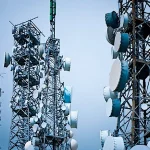Telecom Stakeholders Call For Unified Regulatory Framework At ATCON AGM
The Association of Telecommunications Companies of Nigeria (ATCON) held its Annual General Meeting and NEC Elections on Thursday, May 8, 2025, spotlighting a critical industry-wide concern:...

The Association of Telecommunications Companies of Nigeria (ATCON) held its Annual General Meeting and NEC Elections on Thursday, May 8, 2025, spotlighting a critical industry-wide concern: increasing regulatory interference from non-core agencies.
The event, themed “Impact of Adjacent Agencies on Nigerian Telecom Sector: The Way Forward,” gathered industry leaders and key stakeholders for a high-level dialogue on structural, regulatory, and operational threats stalling sector growth.
ATCON President Tony Emoekpere opened the session by reflecting on his two-year tenure, which saw the addition of 27 new member companies and participation in over 75 key local and international engagements aimed at defending industry interests.
“While we’ve made significant progress, the growing influence of non-telecom agencies in our operations is alarming. Imposing levies and regulatory conditions without sectoral context jeopardizes investment and disrupts service delivery,” Emoekpere stated.
Stakeholders described the situation as regulatory duplicity, with multiple state-level agencies—including revenue, urban planning, and infrastructure authorities—issuing overlapping demands to telecom operators.
One participant noted,
“We are being chased by different arms of government for the same issues. This fragmented approach is not sustainable. We need a unified regulatory model.”
Former ATCON President and CEO of Digital Realty (Nigeria), Engineer Ikechukwu Nnamani, also addressed internal sectoral challenges, highlighting disunity in pricing strategy and industry collaboration.
“We undercut each other in contract negotiations, even with financial institutions who recognize our rising costs. This weakens our collective bargaining power and makes us vulnerable to external pressures,” Nnamani warned.
Vice President of ATCON and CEO of the Internet Exchange Point of Nigeria (IXPN), Muhammed Rudman, emphasized Nigeria’s infrastructural imbalance, revealing that 99.98% of internet users rely on mobile access, compared to over 50% fixed-line usage in countries like South Africa. He referenced Brazil’s success in domesticating 90% of its internet traffic as a model for Nigeria.
In response to the discussions, Emoekpere announced the formation of an Industry Think Tank Committee tasked with developing standardized guidelines for engaging adjacent agencies and strengthening internal codes of conduct.
“We must move from rhetoric to structure. Industry-led think tanks and regulatory committees are necessary if we want to steer the future of telecom in Nigeria,” he said.
The meeting also addressed workforce development, with members agreeing on the need for stronger collaboration with educational institutions to align academic curricula with evolving industry demands.
The AGM concluded with the swearing-in of newly elected ATCON executives, who pledged to prioritize unified regulatory advocacy, internal sector cohesion, and sustainable industry growth.
“ATCON is more than an association; it’s a strategic force for progress. The time to act is now,” Emoekpere affirmed.









No Comment! Be the first one.